Are you on the hunt for a software engineering position and feeling a bit overwhelmed with how to structure your cover letter? Crafting the perfect letter can make all the difference in standing out to potential employers. In this article, we'll break down a simple yet effective letter template tailored specifically for software engineering jobs, highlighting what to include and what to avoid. Ready to get started on your journey to landing that dream job? Let's dive in!
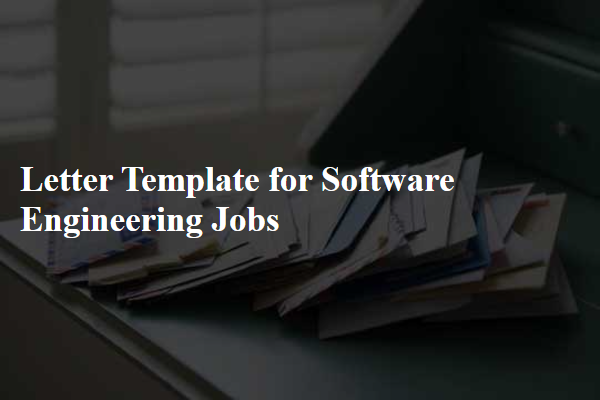
Subject line optimization
Subject line optimization significantly impacts the open rates of job application emails within the competitive software engineering industry. Utilizing specific keywords such as "Application for Software Engineer Position," "Experienced Full Stack Developer Application," or "Front-End Developer Position Inquiry" can immediately convey intent. Including the company name like "Application for Software Engineering Role at Google" strengthens personalization, increasing engagement. Leveraging numbers, such as "5+ Years of Experience in Software Development," enhances credibility. Furthermore, contacting individuals through optimized subject lines can boost the chances of standing out among numerous applications in tech hubs such as San Francisco or Seattle. Tailoring the subject line to reflect the job listing's unique elements also demonstrates attention to detail and motivation.
Professional greeting
The professional greeting in a job application for software engineering roles can set the tone for the rest of the correspondence. Using the name of the hiring manager, such as "Dear Mr. Smith" or "Dear Ms. Johnson," personalized greetings demonstrate attention to detail and genuine interest in the position at companies like Google or Microsoft. If the name is unknown, a neutral approach such as "Dear Hiring Manager" can be utilized. This initial contact should convey professionalism, reflecting industry standards and expectations for effective communication within the technology sector.
Personalized introduction
A personalized introduction for a software engineering job application should reflect the candidate's background, skills, and enthusiasm for the role. For instance, a recent computer science graduate from Stanford University could highlight their proficiency in programming languages such as Python and Java, along with experience in developing a machine learning project that achieved a 95% accuracy rate. Additionally, mentioning involvement in collaborative open-source projects can showcase teamwork and problem-solving abilities. Tailoring the introduction to the company's mission, such as a commitment to innovative technology solutions, can further demonstrate genuine interest and alignment with the organization's values.
Highlight relevant skills and experience
In the competitive field of software engineering, proficiency in programming languages such as Python, Java, and C++ is essential for developing robust applications. Extensive experience with web frameworks like Django and React enables the creation of dynamic, user-friendly interfaces. Familiarity with database management systems, including MySQL and PostgreSQL, enhances data handling capabilities, ensuring efficient information storage and retrieval. Experience working on agile teams, utilizing methodologies like Scrum, facilitates collaboration and adaptability in fast-paced environments. Additionally, expertise in version control systems, notably Git, is crucial for managing code changes and fostering effective teamwork. Understanding of cloud platforms, such as AWS and Azure, allows for scalable application deployment, aligning with modern industry trends. Overall, a strong foundation in these areas significantly contributes to job readiness and successful project execution in software development.
Strong closing statement
A strong closing statement for software engineering jobs emphasizes skills, enthusiasm, and readiness for challenges. Highlight programming proficiency in languages such as Python and Java, experience with software development lifecycle methodologies like Agile and Scrum, collaboration with cross-functional teams, and problem-solving capabilities. Express eagerness to contribute meaningfully to projects at reputable companies like Google or Microsoft. Reiterate commitment to continuous learning and adapting to emerging technologies. Invite hiring managers to discuss how expertise aligns with company goals, fostering innovation and driving successful outcomes in technology.
Letter Template For Software Engineering Jobs Samples
Letter template of networking outreach for software engineering contacts.
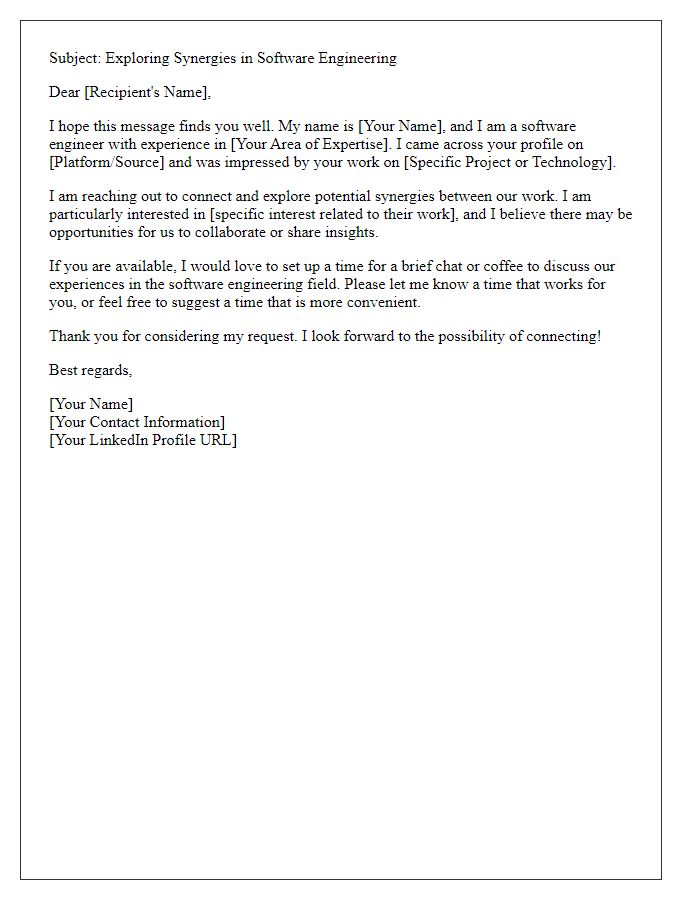

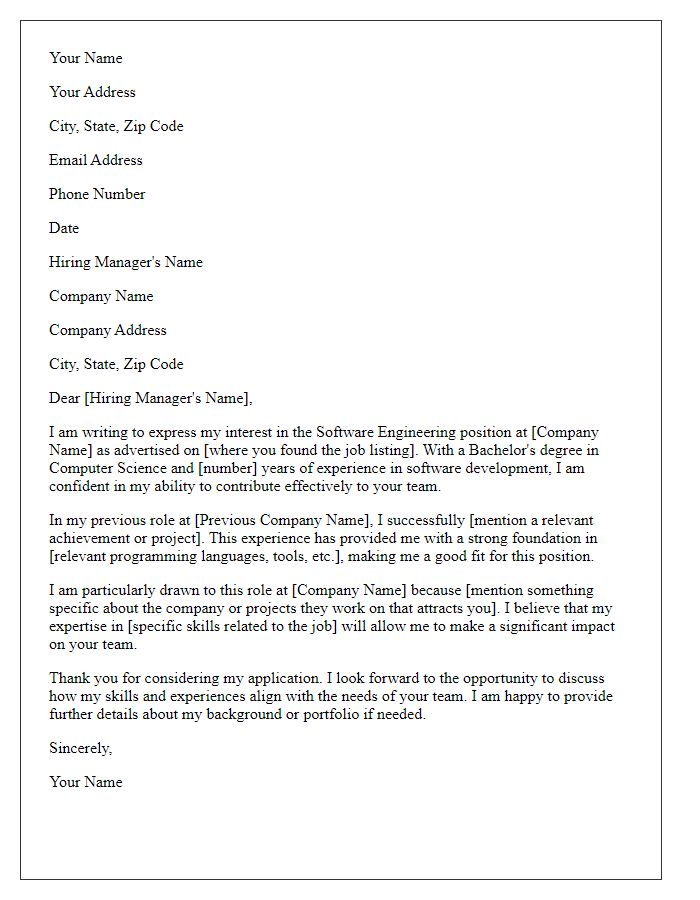
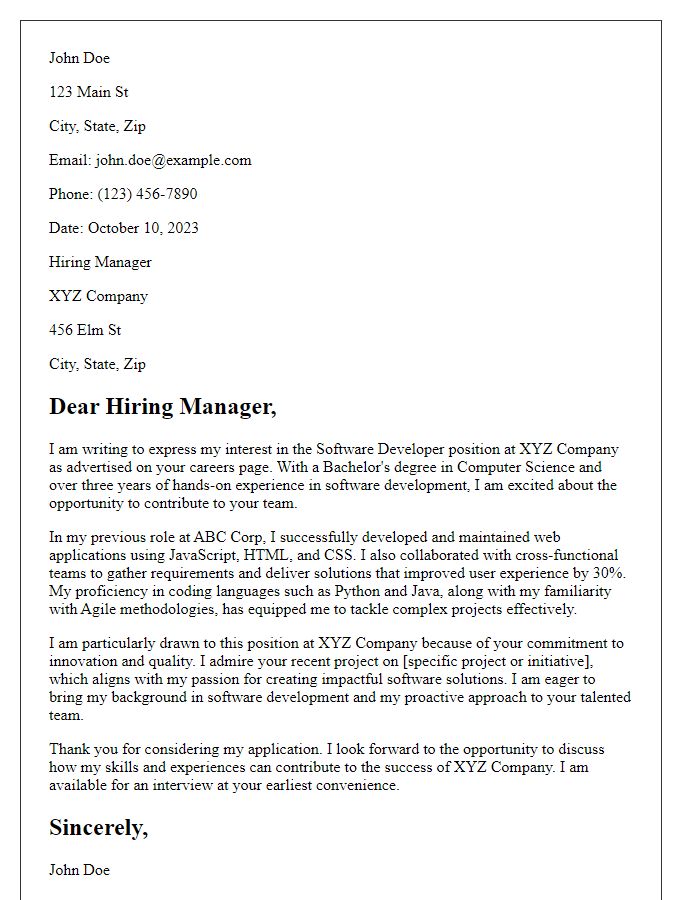
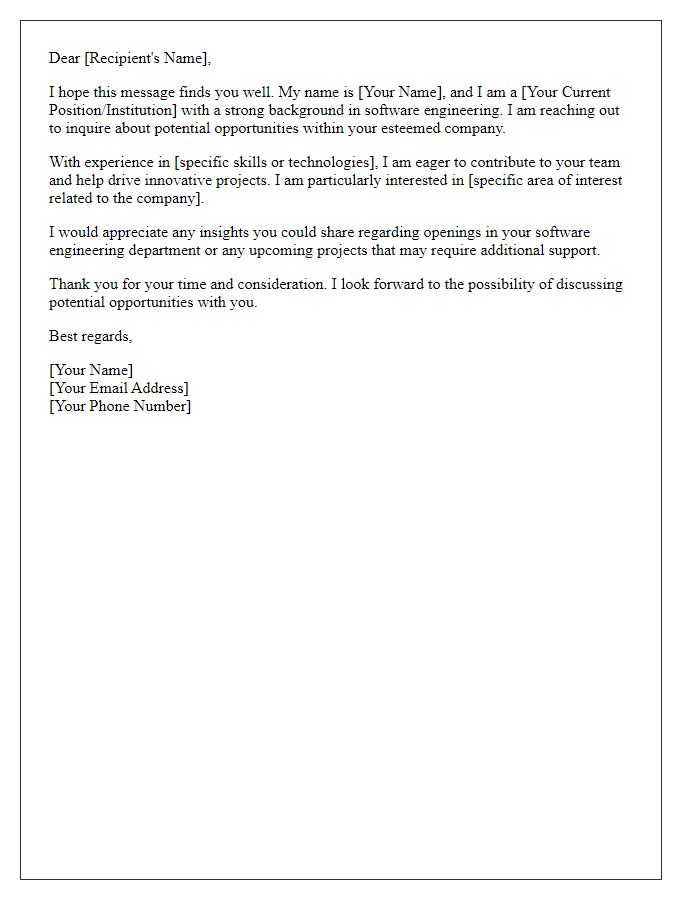
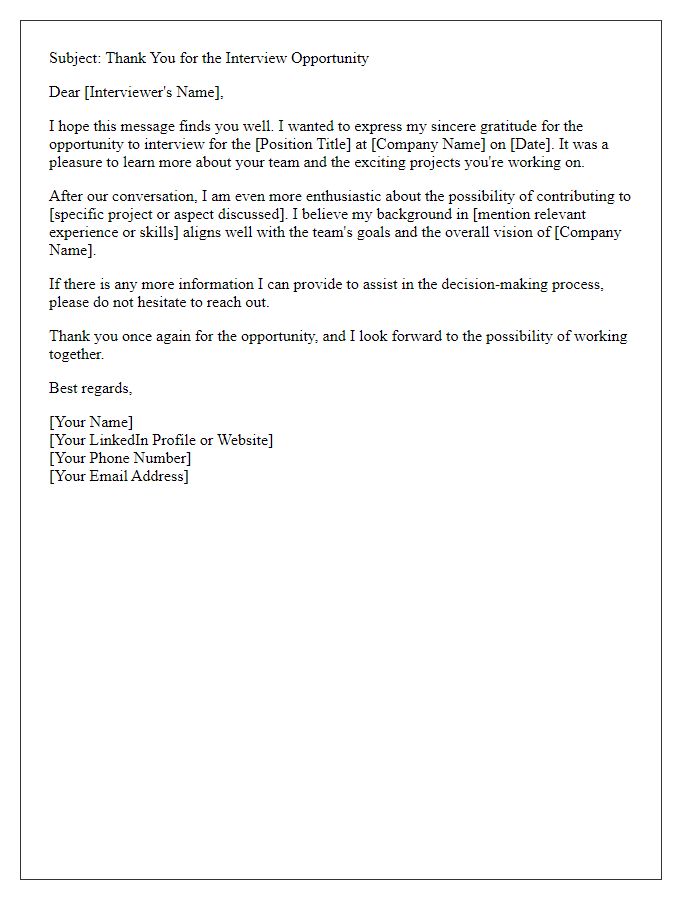
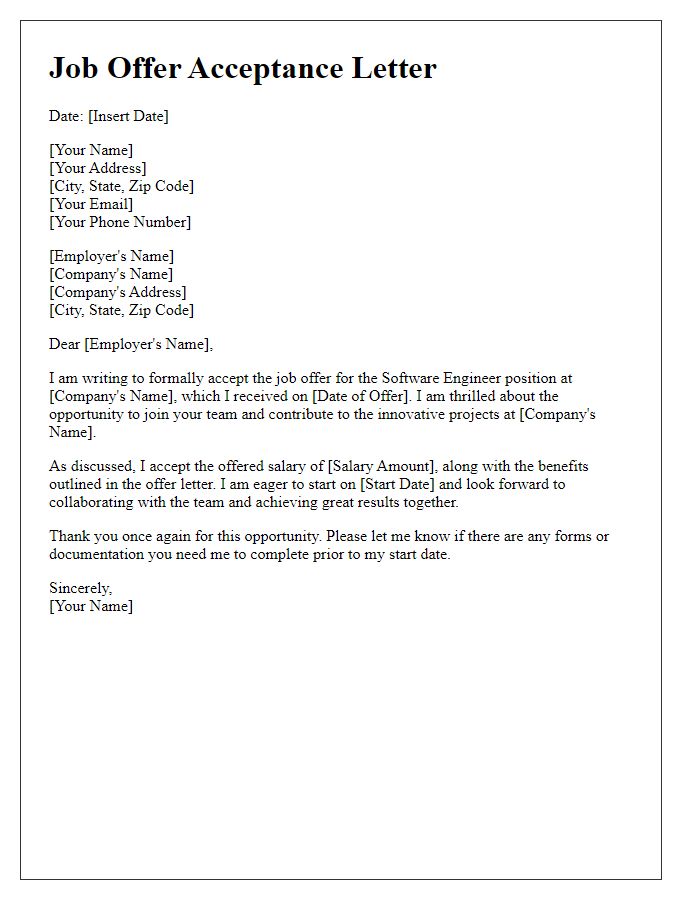
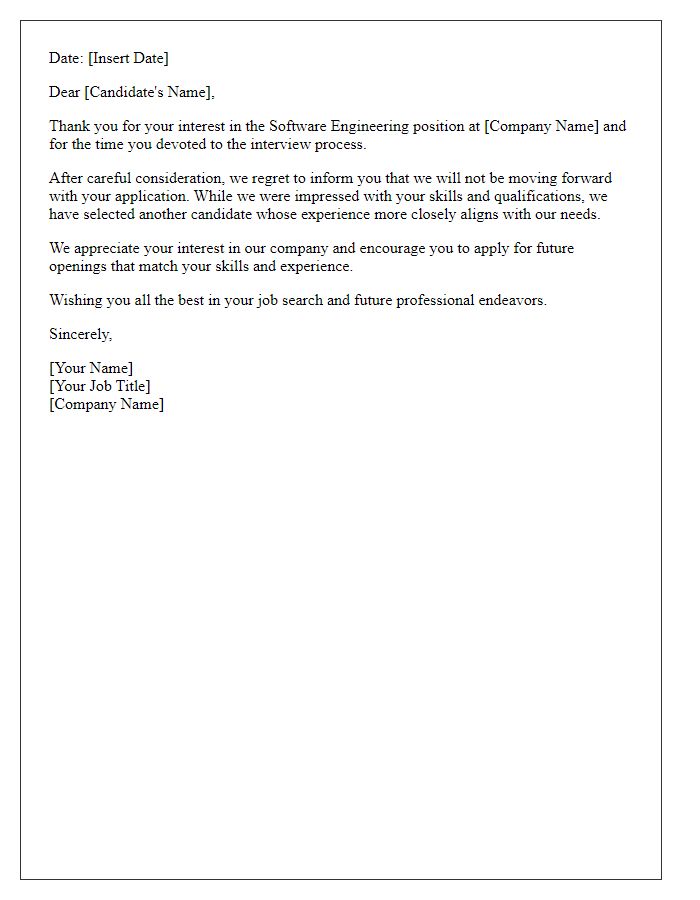
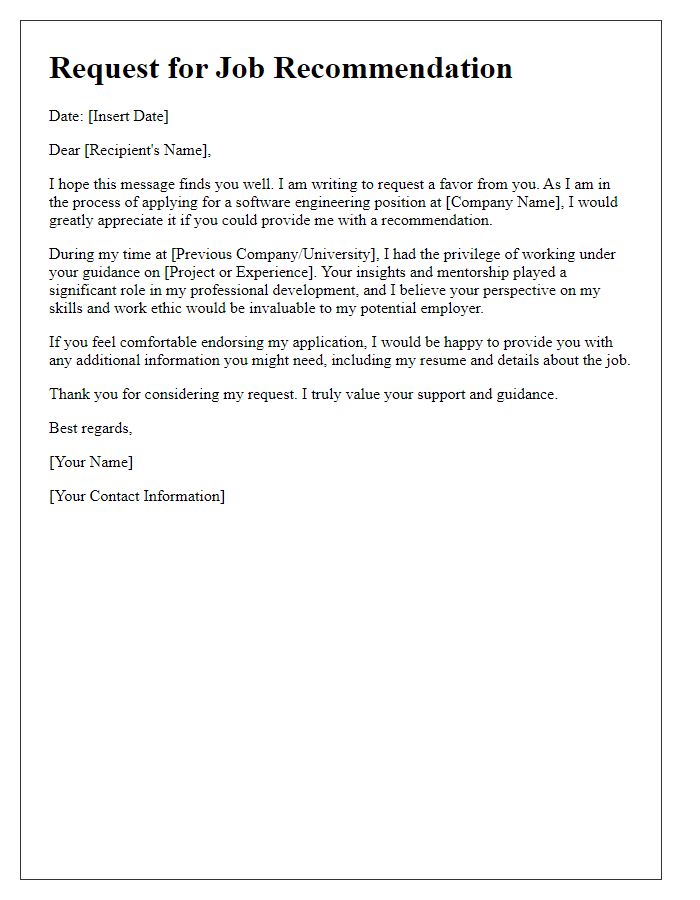
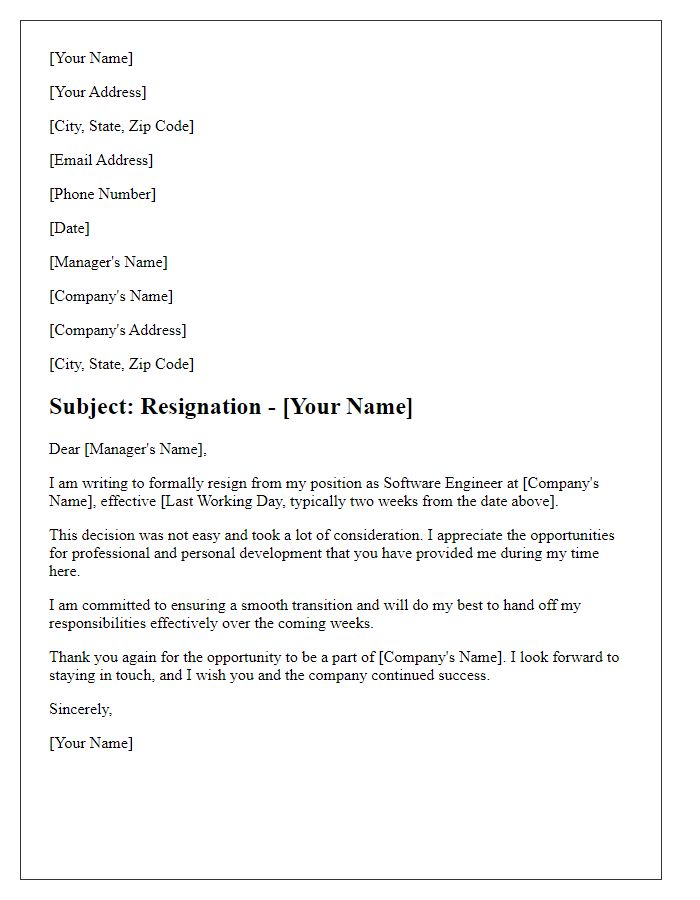
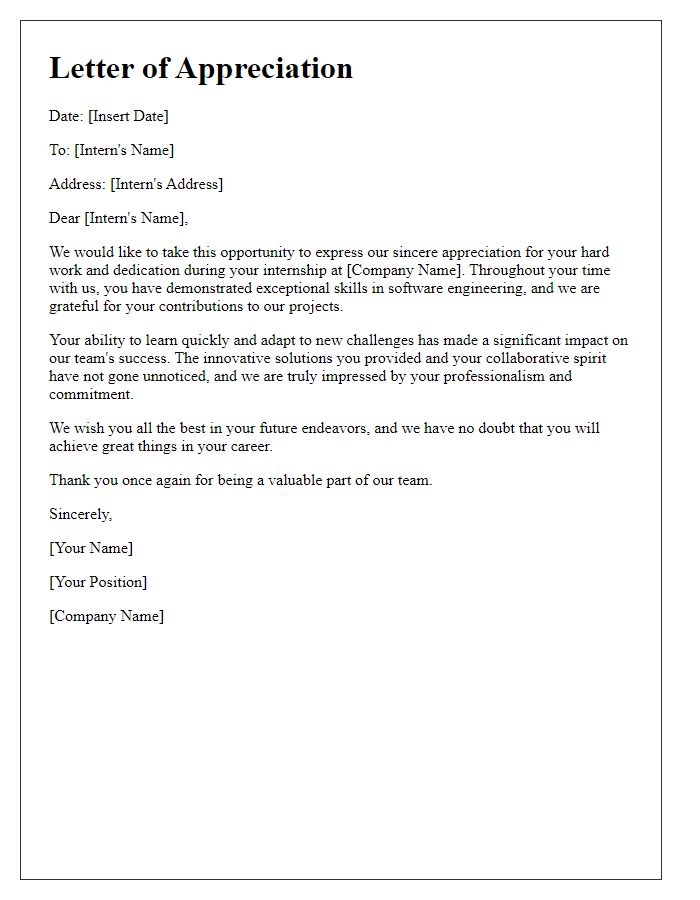

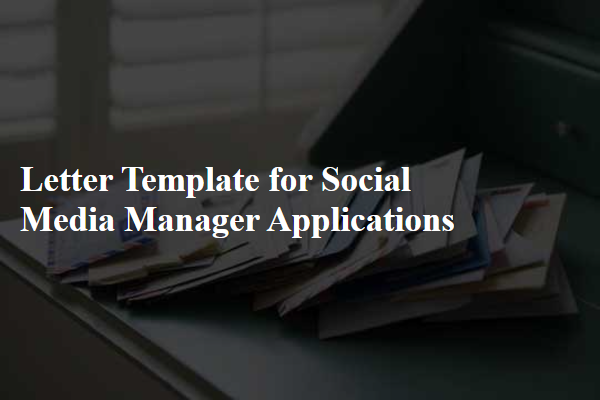
Comments